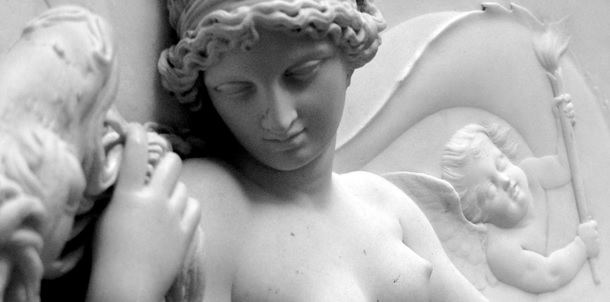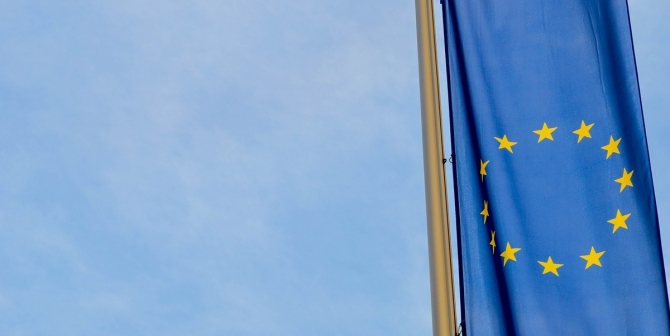 2016 is set to be a significant year for the BBC, with a new settlement on the Royal Charter that underpins the Corporation’s governance and funding arrangements due to be agreed. As part of its policy work in this area, LSE’s Media Policy Project has published a number of blog posts on the topic of the Charter Review, hosted a public event on BBC future funding, and organised a workshop on the BBC’s governance. In this blog post, MPP founding Director Damian Tambini tackles the issue of BBC independence, arguing that the process of policy reform is itself as important to consider as the policy outcomes themselves.
2016 is set to be a significant year for the BBC, with a new settlement on the Royal Charter that underpins the Corporation’s governance and funding arrangements due to be agreed. As part of its policy work in this area, LSE’s Media Policy Project has published a number of blog posts on the topic of the Charter Review, hosted a public event on BBC future funding, and organised a workshop on the BBC’s governance. In this blog post, MPP founding Director Damian Tambini tackles the issue of BBC independence, arguing that the process of policy reform is itself as important to consider as the policy outcomes themselves.
Media policy watchers in the UK are focused on the fine detail of regulatory design outcomes (will it be Ofcom, OfBeeb or some form of self-regulation for the BBC? Will Channel Four be sold off?) We should also reflect on the process of reform. We might find that the chilling effect that occurs as rules are being devised could be a greater threat to broadcaster independence than the new rules themselves, and that protecting independence is about more than fine tuning management and lines of accountability.
A Case of Draft Media Law Syndrome?
As a thought experiment, consider country X where the public service broadcaster (PSB) is not sufficiently protected from government interference. The PSB is likely to become embroiled in reciprocities with government: wishing to please the minister who has responsibility for media policy in order to maintain the privileges of the broadcaster (with regard to funding, for example, or Electronic Programme Guide prominence or cheap distribution). Given that the broadcaster’s role is to hold that politician to account, this is problematic.
Just imagine for a moment that this country was the UK. If the Corporation were not sufficiently protected, only a brave or stupid BBC would be prepared to investigate the delay by the Secretary of State for Culture, Media and Sport, John Whittingdale MP, of the Press Royal Charter framework whilst the same minister was deciding the scale, scope, governance and funding of the BBC. It would be a brave Channel Four that took him on whilst he is mulling selling them off.
Sally Broughton Micova, who studies media policy in South-Eastern Europe dubbed this ‘Draft Media Law Syndrome’. Governments find it rather convenient to maintain a background threat of new regulation. Tweaking the role of Ofcom or the BBC Trust would not solve the problem, as it is more concerned with ongoing processes of reform, and the perceived or real existential threat to the BBC.
I will leave the reader to reach their own conclusions about whether the BBC might be pulling its punches, particularly in its coverage of Whittingdale. But we can, particularly after the funding settlements of 2010 and 2015, ask if the current governance arrangements are the best we can do to protect the BBC from such an uncomfortable position, and indeed whether enough is being done to strengthen and institutionalise the culture of BBC independence to reassure journalists and the public, and prevent this happening.
Allegations that politicians – wittingly or otherwise – put pressure on public broadcasters through the policy process rather than through regulation, are hard to evaluate. Necessary policy adjustments can also be ‘attacks’ on independent media. Closures of regional PSBs in Spain and Greece were seen as attacks on media freedom, and Polish and Hungarian media reforms have been criticised by the European Commission. In the same vein, radical BBC reform is likely to be controversial in the UK.
The Recommendations of the Independent Review
This places a heavy responsibility on Sir David Clementi, who will shortly make his independent recommendations on reform of BBC Governance. He and the Secretary of State for Culture, Media and Sport will address this year’s Oxford Media Convention (co-organised by the LSE Media Policy Project) on 2 March, so proposals should be on the table by then. Back in December, Sir David attended a Media Policy Project seminar discussing models of PSB governance. A note of what was discussed at the event is here, and you can find a blog by one of our presenters here. Clementi has a hard task: maintaining genuine editorial independence, but improving what appears to be a broken system of accountability and auditing.
He will need a sharp scalpel. Participants at our workshop brainstormed whether government, Parliament, independent regulators or the BBC’s Executive Board should have the lead role in relation to some key parts of the governance framework. There were some dissenters, but we came up with the following schema: the ticks indicate who should take the lead:
| Responsibility/Body | Government | Parliament | Board | Independent Regulator* |
|---|---|---|---|---|
| Setting the remit | ✓ | |||
| Licence fee levels | ✓ | ✓ | ||
| Value For Money (VFM) / Audit | ✓ | |||
| Public Value Tests (PVTs) / Market Impact Assessment (MIA) | ✓ | ✓ | ||
| (Editorial) complaints | ✓ | ✓ | ||
| Content | ✓ |
(*Not all participants agreed that there should be a regulator independent of the BBC. In some cases, there would be overlapping roles (two ticks) or participants didn’t agree. The division of functions indicates that sensitive content issues should be kept well away from government. There is more acceptance of government in licence fee setting (in contrast for example to Germany)).
It may be that the informal and pervasive timidity and self-censorship that may infect an organisation that faces funding cuts, uncertainty about future scope, and new funding burdens, is worse than the prospect of direct editorial interference through regulation. These are subtle problems and the devil is in the detail. For example whilst there is a strong view that political input is necessary on overall budgetary policy for BBC funding, it would be entirely possible to delegate decisions on the licence fee to a technocratic body like the Kommission zur Ermittlung des Finanzbedarfs der Rundfunkanstalten (KEF) in Germany that can apply standard technical principles of audit and review, and thus remove the Damoclean sword from the Ministerial armoury. The current financial oversight of the BBC Trust (as cheerleader and regulator) and Parliament (effectively, no more than a rubber stamp) is not sufficient, even with National Audit Office (NAO) involvement. The conclusion must be that we do need tougher oversight, but we certainly do not need more uncertainty and reciprocities (or even the perception of reciprocities, whether witting or unwitting, willing or unwilling) between politicians and broadcaster.This is simplified to the point of crassness, and the key point is fairly obvious: editorial independence is more important than financial independence. But it is also obvious that tinkering with the formal governance arrangements can only deal with part of the problem, and leaves aside the more constitutional question of protection of independence per se, and particularly the vulnerabilities of the BBC during the process of policy formation.
The Charter can protect independence, but BBC reform requires civil society input
Let’s be frank: the status quo does not offer sufficient safeguards for BBC independence. Article 6 of the 2006 BBC Charter sets out:
“6. The independence of the BBC
(1) The BBC shall be independent in all matters concerning the content of its output, the times and manner in which this is supplied, and in the management of its affairs.
(2) Paragraph (1) is subject to any provision made by or under this Charter or any Framework Agreement or otherwise by law”.
The Charter also lists as one of the general duties of the Trust the duty to “secure that the independence of the BBC is maintained”. The future of this provision is crucial. Given that the Trust is in all likelihood to be wound up, what could be done to ensure that Ofcom or OfBeeb are in a position to help the BBC defend independence rather than side with the Government? It may be necessary to devise a specific body with a narrow remit like the Press Recognition Panel, which would have the specific purpose of keeping the Corporation at arms-length from Government. There are many ways that independence could be better safeguarded, but this has not been identified by the Government’s reform plans.
Bolstering independence needs to be an objective of the new governance arrangements. This of course means identifying the obvious issues, from senior editorial appointments (which is nearly always the touchstone controversy in European PSBs, from Poland to Italy) to the setting of funding. But the BBC also needs stronger constitutional separation to strengthen the BBC’s agency.
We need a clearer definition of independence in the Charter
Threats to independence are unpredictable (from the General Strike to the Hutton Inquiry) and diffuse (the ongoing policy process, funding negotiations, crises and scandals). Currently it is the responsibility of the Trust and the BBC itself to maintain their own independence. Several participants at our event claimed that the Trust had failed in its duty to maintain independence because no-one from the Trust resigned during the 2015 funding negotiations. There may be something to this. But apart from individual resignations, there is little under the current framework that bodies such as the Trust could do if they think their independence is being threatened. A stronger legal definition of independence in the Charter that would enable judicial review of actions or decisions that potentially constitute a threat to the BBC’s independence, could offer a more effective safeguard.
This blog gives the views of the author and does not represent the position of the LSE Media Policy Project blog, nor of the London School of Economics and Political Science.
This post was published following a workshop held in November 2015 by the Media Policy Project, ‘BBC Governance: independence, innovation and accountability’. This was the first of a series of workshops organised throughout 2015 and 2016 by the Media Policy Project as part of a grant from the LSE’s Higher Education Innovation Fund (HEIF5). To read a summary of the workshop, please click here.






1 Comments